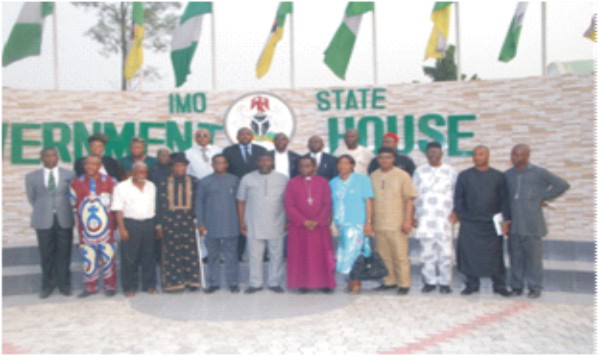By Nnamdi Nwigwe
G.S.M: 08037024609
The doomsday prognostications on the fate of our Igbo Language are not shared by this writer.
In other words I prophesy that there is no danger of the extant Igbo we speak today going extinct.
Many who have written to express fears of the likelihood of Igbo language going extinct seem to be bothered that young families, and indeed even the older generation, are heard speaking English at home to their children. Even at the Kindergarten and Primary Schools, instruction is given in English instead of Igbo.
So parents attempting to speak English to their little children in Igbo land amounts to killing the Igbo language?
One cannot see the logic in habouring such fears.
If you want to hear Igbo spoken how it should be spoken, tune to any of our local radio stations during their Igbo programme period.
Beautiful Igbo!
Go to the country side; visit the markets and hear Igbo spoken without any effort.
Certainly, a language will go into extinct if those who speak it also evaporate.
But is there any danger of our great Igbo producers and presenters on radio dying off soon?
Or do we envisage any pandemic blight that will wipe out our people in our natural environment in the villages? God forbid!
Where then lies the basis of the fear of extinction of Igbo language when there is no fear of the extinction of Igbo speakers.
Our worry about our little ones being taught in English in the Nursery and Primary Schools is the defective teaching they receive.
Parents who speak to their children only in English, and teachers who murder grammar and syntax in their self delusion that they are teaching English, are the real people in danger of being without a distinct mode of communication.
Any good teacher of a language agrees with experts in philology that the problem of learning a language different from one’s mother tongues lies in the teacher’s ability to understand thoroughly his own language and the language he teaches.
Here in Igbo land, we think in Igbo while attempting to speak in English. In another words we speak Igbo in English!
Same is of course applicable to other linguistic groups who dabble into other people’s language.
When for instance, a nursery school teacher shouts on the three-year old child under her care “come on close your mouth!,” when she actually wants the child to stop crying or stop talking, she translates Igbo “mechie onu gi” into English.
Our striving should be to learn English well and speak it well.
Our brethren who mark English language papers in both WAEC and NECO exams will admit their trauma in trying to understand what the candidates are actually trying to say in their English expressions.
There is this real life story of a student from one of the villages in Igbo land who found himself in the old Government Secondary School where Igbo or any other Nigerian language was forbidden.
He had cause to make a defence before a school prefect who queried him for beating up a class mate.
“Excuse me please,” he began “I didn’t do him yam or cocoyam and he took something and struck me.”
Unfortunately the prefect was not an Igbo and so was unable to appreciate the direct translation of “emegh’m ya ji, emegh’m ya ede…”
He had to get the fresher to speak the English that would reflect what he had in mind.
In the days when our elders requested us to help them to write letters to their children living far from home, they would dictate in Igbo and we would write in English.
A mother wanted to emphasize to her child how she and her husband strained themselves to train him up to the level that he could now work and earn an income.
The helpful scholar listened attentively and translated as faithfully as he could what the old lady said:
“Cheta na mu na nna gi tara ahuhu, zuo gi.”
In translation it appeared as “Remember that me and your father ate ants to train you.”
This is not a fable.
We can improve our Igbo and our English speaking only by listening to competent speakers of the languages.
We must get our young ones to listen to news and talks programmes on radio and television to learn good English.
Igbo producers and news presenters are a good source of good Igbo.
Schools – both Primary and Secondary – should adjust their time tables to accommodate listening to specific Igbo programmes on radio during normal classes.
Same could be done with some programmes in English. Radio Nigeria has a crop of announcers and producers who have been taught to speak and write English well.
Perish the thought that Igbo language will ever go extinct because Igbo people speak English at home.
What we should worry about is that both Igbo and English be so handled that we no longer get to writing in English what we are thinking of in Igbo.











